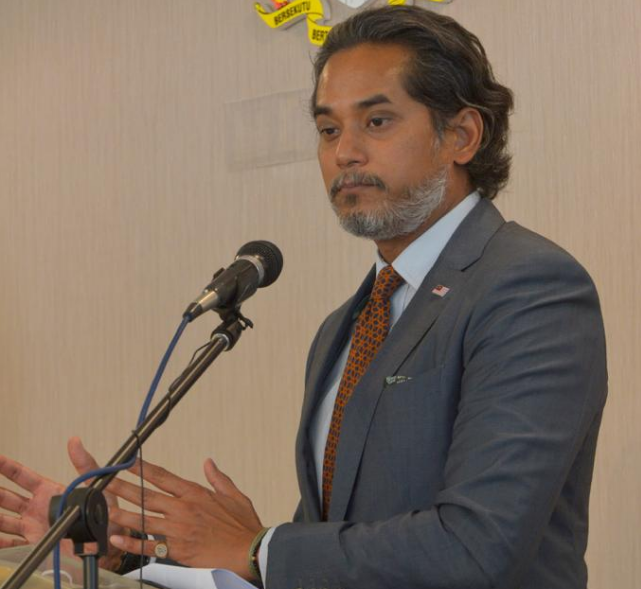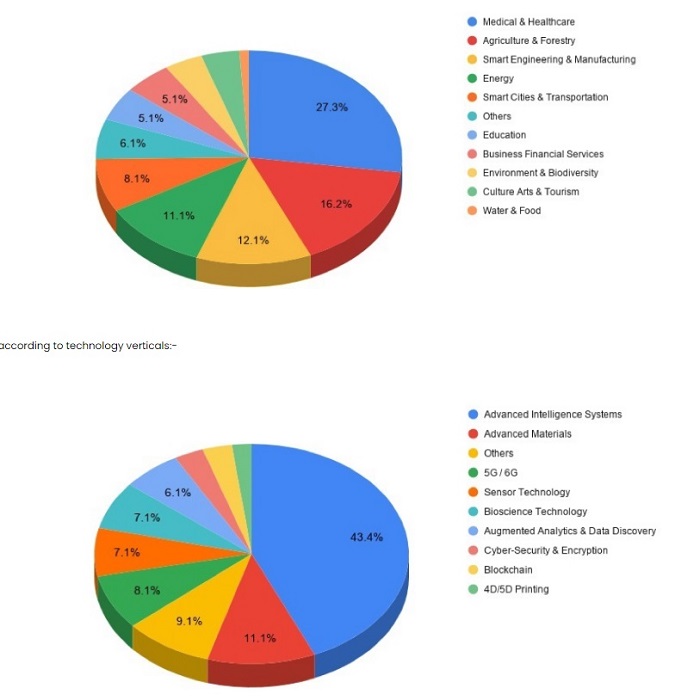Malaysia’s Science, Technology & Innovation Minister works govt levers in support of innovators
By Khairy Jamaluddin February 1, 2021
- NTIS a testbed to support disruptive technologies, help nation solve key challenges
- Cross-ministry engagement to ensure government procurement prioritises local tech
 On 19 August, 2020 the Prime Minister launched the National Technology and Innovation Sandbox (NTIS). NTIS is a facility that is run by my ministry, Ministry of Science Technology & Innovation (Mosti) that allows researchers, innovators and entrepreneurs to test their products and services in a live environment and qualify for grants to bring those products and services to market. NTIS relaxes certain regulatory requirements to accelerate the development of innovation from the R&D stage to being commercially ready.
On 19 August, 2020 the Prime Minister launched the National Technology and Innovation Sandbox (NTIS). NTIS is a facility that is run by my ministry, Ministry of Science Technology & Innovation (Mosti) that allows researchers, innovators and entrepreneurs to test their products and services in a live environment and qualify for grants to bring those products and services to market. NTIS relaxes certain regulatory requirements to accelerate the development of innovation from the R&D stage to being commercially ready.
When I presented the idea of NTIS to the National Economic Action Council, my reasons were twofold. First, I wanted to champion local innovation and wanted to create a smoother pathway for Malaysian technology to get to market. Second, I wanted to use NTIS as a testbed for disruptive technologies that would enable Malaysia to solve some of our grand challenges that have been exacerbated by the pandemic.
Among the missions that the Prime Minister wanted NTIS to embark on would be to drastically reduce the number of foreign workers in Malaysia, increase our food security, put the country on the path to carbon neutrality and tackle the great health issues of today like non-communicable diseases and pandemics. While not quite moonshot, these earthshot challenges have continued to persist. NTIS takes technology and disruption to try to solve them.
In order to do this, I secured an initial budget of US$19.8 million (RM80 million) to fund the first round of successful proposals.
Five months on where are we?
We have, as of 20th January received 396 applications and have approved 88 deals into the sandbox. The type of technologies that we have seen through these applications include AI, advanced analytics systems, machine learning, blockchain, advanced materials, sensor technology and more which are targeted for a range of industries such as medical and healthcare, agriculture and forestry, business financial services, transportation, energy and more. These technology verticals and classification of industries are based on a framework developed by the Academy of Sciences Malaysia known as the MYSTIE 10x10 framework. It is an integrated approach combining the two major sectors of the country, namely 'STI' and 'Economy' as one sector, to ensure high impact, thus making STI as an enabler in addressing national issues and challenges.
The chart below illustrates the breakdown of deals currently in the sandbox based on the economic sectors:

The approved projects represent some of Malaysia’s most cutting-edge innovation being deployed to tackle specific problem statements within the grand challenges that have been identified.
Among them are delivery and sanitation robots that can be deployed in healthcare and facilities maintenance, reducing dependence on low-skilled jobs. There are also projects that will increase the quality of healthcare through technology like AI that can assist with x-ray diagnostics, robot assisted limb-rehabilitation, and affordable, automated semi-ventilators that can be deployed to underserved areas.
Other projects include developing drone usage for agriculture that can increase yield and reduce the need for foreign workers in the commodities and agricultural sector, while at the same time create high tech job opportunities for Malaysians.
There are also proposals in the sandbox deploying technologies like blockchain for authenticating education certificates, encryption for quick immigration clearance and bioscience for wastewater treatment.
The sandbox also proved to be a platform to showcase our many talented local tech entrepreneurs and the great work they do. Some notable entrepreneurs include Dr Yeong of DF Automation who developed the delivery robots, Ganesh Muren of Ethovent who developed the affordable semi ventilators for hospitals; Kamarul Muhamed founder of Aerodyne, an international drone based managed solution provider, ranked second in the world by Drone Industry Insights (DII) in its 'Drone Service Provider Ranking 2020 with offices across the globe; Rajifah Ramli of Data8 Sdn Bhd who developed various technologies for healthcare including a blockchain platform called cHEART that stores and manages health information in real-time; Faisal Ariff of BorderPass who developed the contactless auto gate service that can get travellers through airport immigration in seconds. These are just some of the many great entrepreneurs and innovators NTIS has seen. This platform will continue to provide the opportunity for these local innovators to shine and receive the support needed.
Not all projects approved require funding. Some need regulatory facilitation. For instance, drone tech will benefit from being in NTIS because test sites have been created in partnership with Civil Aviation Authority Malaysia (CAAM) where companies will be able to deploy their technologies in a live environment. The drone tech test sites are in FELDA Mempaga in Pahang where drones will be tested for use in plantations and Iskandar Malaysia’s, Drone & Robotics Zone in Johor where live cases of drone deliveries will be tested.
Although it is early days, I am really excited about the future of Malaysian technology and innovation that will be chanelled through NTIS. We are continuously engaging with stakeholders to ensure there is clarity about the approval process including why proposals may not have been approved. This way we can redirect these proposals to other funding options under MOSTI or any other relevant government ministry. We are also continuously improving the processing to cut short evaluation time and reduce bureaucracy. Any feedback on application experience is most welcome.
I am also working with relevant ministries and agencies to ensure that government procurement prioritises local tech solutions including those that come through NTIS. For me government should not merely fund and support the development of local technology solutions, government should also support local innovators by procuring solutions from them. This end to end support will create viable, local tech companies that can scale up regionally and globally.
NTIS is open for applications on a rolling basis and Malaysian innovators looking to develop and commercialise technology solutions to solve our grand national challenges are welcome to apply at sandbox.gov.my


